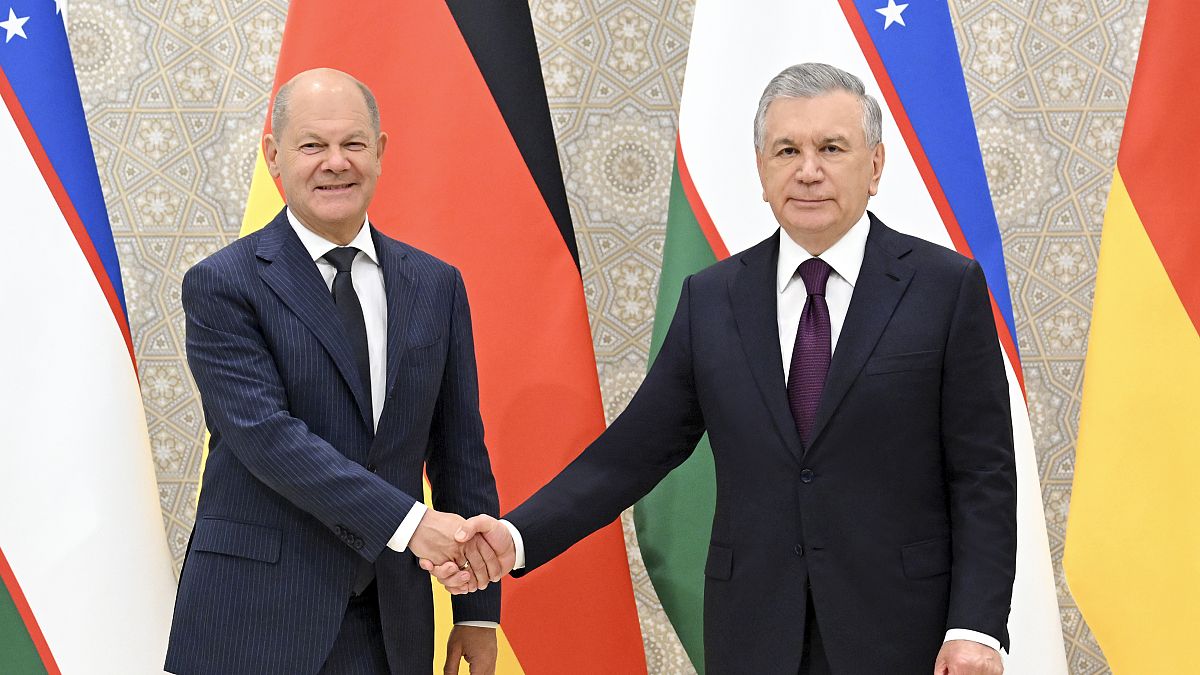The recent migration agreement signed between Germany’s Chancellor Olaf Scholz and Uzbekistan’s President Shavkat Mirziyoyev aims to facilitate the entry of skilled workers from Uzbekistan, particularly in the healthcare sector. The agreement signed in Samarkand includes measures to hasten and simplify the repatriation process of Uzbek individuals living in Germany without legal permits. The move is expected to benefit around 13,700 Uzbek nationals currently residing in Germany, with a focus on streamlining entry for talented individuals. Scholz emphasized the importance of enabling talented individuals to enter Germany while also ensuring efficient processes for repatriation when necessary.
Apart from the migration agreement, Scholz and Mirziyoyev also signed seven other agreements during the visit, covering areas such as sustainable water resource management and a critical minerals partnership. These agreements showcase the broader scope of the diplomatic discussions and cooperation between the two countries. Scholz, who will head to Kazakhstan next, is expected to address issues related to oil and gas supplies to Germany and sanctions on Russia following the 2022 invasion of Ukraine. The visit highlights the strategic importance of Central Asia in Germany’s foreign policy objectives.
Despite the positive developments in the bilateral agreements, Scholz’s trip to Kazakhstan has also faced criticism from international watchdog Human Rights Watch (HRW). The upcoming summit with the heads of all five former Soviet republics, which Scholz is expected to attend, raises concerns about human rights issues in the region. HRW has called on the German government to prioritize human rights discussions during the summit and address the persistent violations in the region. These include issues such as the suppression of rights to protest and express opinions, harassment of activists, torture in detention, crackdowns on civil society, violence against women, and lack of free and fair elections.
The Central Asian republics have historical ties to Moscow, with Kazakhstan playing a key role in enabling Russia to bypass trade restrictions. Scholz’s discussions in Kazakhstan are likely to touch upon these dynamics, particularly in the context of the ongoing conflict in Ukraine. The visit presents an opportunity for Germany to engage with Central Asia on multiple fronts, including economic cooperation, regional stability, and human rights issues. By participating in the summit with the Central Asian leaders, Germany aims to strengthen its ties with the region and promote dialogue on shared challenges and opportunities.
Overall, the migration agreement between Germany and Uzbekistan marks a significant step towards enhancing the workforce mobility between the two countries, with a focus on the healthcare sector. While the visit to Central Asia has garnered attention for its economic and strategic implications, concerns over human rights violations in the region have also been raised. As Scholz continues his diplomatic engagement in Kazakhstan, the spotlight remains on the need for meaningful discussions on human rights issues and the promotion of democratic values in the region. The outcome of these discussions will shape the future trajectory of Germany’s relations with Central Asia and its approach to addressing shared challenges in the region.










